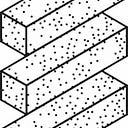What’s your role in the Transition to a New Economy?
By Andy Thomson, enkel & Holonic
To shift to a new economy which is more sustainable and equal we need to understand the different roles that are needed.
The figure below allows us to see where you as an individual fit into the full picture of a transition to a new system, based on your profession, skill sets and personal traits.
Some people will remain mostly in the old paradigm and others will be walkers who want to actively build something new — a next system. But the really essential people are those who are capable of working in-between, transcending paradigms.
Here are some roles that I feel are critical to the success of an emergent approach to systems change. The list has been inspired by Malcolm Gladwell’s book The Tipping Point and Deborah Frieze’s ‘Two Loops’ model.
1. Systems Leaders and visionaries
are people who in a 2015 article in Stanford Social Innovation Review are described as:
a) Being able to see the bigger picture, helping other stakeholders do the same.
b) Nurturing reflection and productive discussion, allowing people to understand one another better, building trust and relationships which promote collaboration and creativity.
c) Shifting collective focus from addressing symptoms to rethinking and co-creating the future.
2. Illuminators and Salesmen
are charismatic, skilled communicators with solid nuanced marketing experience who:
a) Initially can bring the vision to life, engaging and inspiring others to move and participate in the development of this space.
b) Then overtime, help with the mainstream shift once a tipping point has been reached.
3. Trailblazers
are pioneers who need freedom to push and test the boundaries of what is possible to bring new innovations to the forefront.
4. Early adopters
are first followers who help or support Trailblazers to get their ideas off the ground.
5. Protectors and facilitators
understand the present paradigm and have the power to create space and redirect resources for innovation and experimentation, thus giving birth to the new paradigm.
6. Connectors
are very well connected with a whole host of people and able to spot and facilitate connections between people and projects at local, national, and global levels.
7. Mentors and mavens
empower others to reach their full potential by sharing their knowledge and providing support and direction. Mavens are those you ask whenever you want to know something about anything, the people with ideas and information.
8. Bridgers
are pragmatic visionaries who extend the present paradigm by keeping a close eye or working closely with trailblazers so as to future proof developments, thus reducing redundancy and stranded assets.
9. Hospice workers
are people with strong interpersonal skills and patience that:
a) At first, work to ensure the health of those in the community.
b) Then help the late majority and laggards within the mainstream to transition from the old to the new.’
What’s your role in the Transition to a New Economy?
This blog post is an extract of my series Systems Intelligence: The case for transcending typical systemic approaches to developing a regenerative economy.
